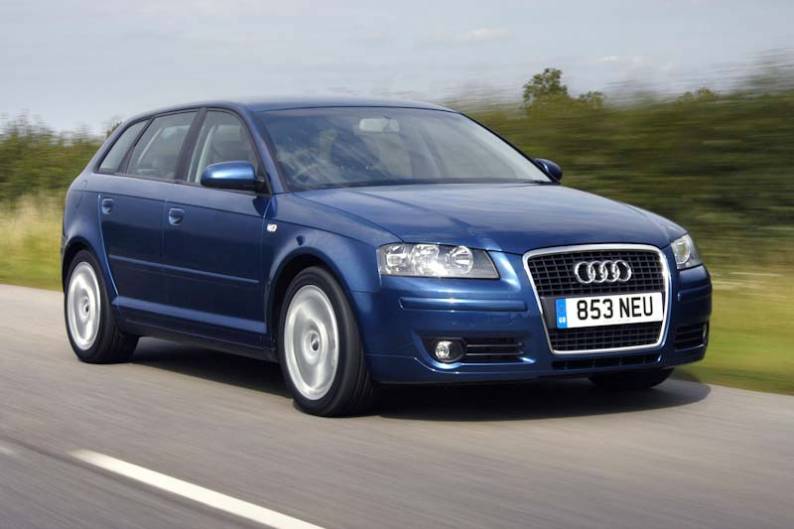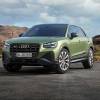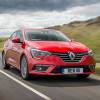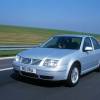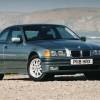
RAC sale – up to 33% off*
• Roadside cover from £5.29 a month†
• We get to most breakdowns in 60 mins or less
• Our patrols fix 4/5 breakdowns on the spot

BY ANDY ENRIGHT
Introduction
Although they don't get things right first time every time, you have to credit Audi with listening to customer feedback. Latin scholars amongst you will find that entirely apposite, the word Audi itself roughly translating as 'to listen'. When they launched the original five-door A3, they went about it in a rather half-cocked manner, squeezing five-doors into a compact bodyshell that did neither the car's shape or the rear passenger's legs any favours. With the Sportback, the Ingolstadt company went about things in a far more professional way and in doing so, created a very desirable premium hatch. Here's how to track down a decent used one.
Models
Models Covered:
5dr hatch [1.6, 2.0, 3.2 petrol, 1.9, 2.0 diesel (Sport, SE, Quattro Sport)]
History
The history of the A3 Sportback is relatively straightforward. Audi launched the second generation A3 range back in summer 2003, with three-door models comprising the entire range. It wasn't until summer 2004 that the Sportback arrived in dealers, offering all the engine variants of the three-door car. Later that year a 1.6-litre FSI engine was introduced. The impressive 2.0-litre FSI turbo unit that powered the Golf GTi was also made available in the A3.
The 2.0 TDI 170 diesel engine was introduced in the summer or 2006 and the impressive DSG gearbox became known as S Tronic at around the same time. Then, later that year, the normally-aspirated 2.0-litre FSI engine was given the old heave-ho in favour of a 1.8-litre turbo FSI unit with 158bhp. This was followed in mid 2007 by the 1.4 TFSI which replaced the 1.6 FSI.
In mid 2008 the A3 underwent a facelift across the range. Stylish improvements to the vehicle included the front wings and the grille becoming shapelier, the headlights were made sharper-looking and the side repeaters were incorporated into the door mirrors. A 2.0-litre common-rail engine was introduced. This was followed in summer 2009 by a 1.6-litre TDI common-rail engine.
What You Get
Although it lacks the nuggety compactness of the three-door car, the five-door Sportback isn't a bad looker at all, certainly a good deal easier on the eye than the rather 'challenging' BMW 1 Series. An 83mm increase in body length and extra wide opening rear doors adds up to easy accessibility and far better rear knee and head room than its three-door counterpart. Space up front is equally good, the transverse engine and front-wheel drive transmission minimising intrusion into the passenger cell. Quattro four wheel drive is offered on certain variants. Given that the current generation A3 is 65mm longer in the wheelbase than its predecessor, it's obvious that rear seat passengers will be a whole lot happier in the Sportback than the old A3 five-door. The luggage compartment also grows by 20 litres giving a total of 1,120 litres of space with the rear seat folded flat.
Standard safety equipment includes window airbags, electronic stability control, ABS, brake assist, a part-electric power steering system and anti-whiplash head restraints. The cabin has been restyled to offer a little more design flair, Audi realising that high quality alone isn't enough to lure buyers into showrooms. There has to be some style on display too. The fascia struts ape the interior design of the TT, as do the round air vents and chrome-rimmed dials. It's still not what you'd call revolutionary, but it's beautifully executed. Original A3 Sportback buyers could choose between standard, SE and Sport trims with the S-Line upgrade pack to consider. An optional Open Sky twin sunroof system was also available for order.
What You Pay
Please fill in the form here for an exact up-to-date information.
What to Look For
It's a testament to the quality of modern Audis that most used guides have nothing to report. 'Too new to report any problems' or 'nothing significant' are the usual commentaries on the A3, and it's the same across the Audi range. Reliability of the A3 has been excellent so far, so just look for main dealers service stamps, a sheaf of receipts and check for the usual accident or misuse damage.
On the models fitted with low profile tyres, check the expensive alloy wheels for kerbing damage, and insist on locking wheel nuts. Other than that, buy with confidence.
Replacement Parts
(approx based on an A3 1.6) Potential buyers will be cheered to know that premium pricing does not stretch to Audi's parts prices. A replacement headlamp unit is £165 and a starter motor a comparatively inexpensive £150. An alternator costs in the region of £145, and front brake pads should cost £50. A clutch assembly is around £155. Not too painful is it?
On the Road
The engines offered mirror the choice available for three-door A3 range and include the 2.0T FSI powerplant, cranking out a hefty 200bhp punch. This will accelerate the Sportback to 60mph in just 6.9 seconds and on to a top speed of 150mph. The two most popular engines are the 150bhp 2.0-litre FSI petrol engine that's been so successful in the A4 range and a 140bhp 2.0-litre TDI diesel that many buyers will rightly choose. The 168bhp 2.0-litre TDI 170 unit that was introduced later is a great compromise between pace and economy. You can also order a more affordable 105bhp 1.9-litre TDI and a less affordable 240bhp 3.2-litre V6. A 102bhp 1.6-litre petrol engine is also offered as an entry-level model and above that there's a 1.6-litre FSI option. The V6 is fitted with quattro all-wheel drive transmission as standard but the system is available on the 2.0T FSI as well as the 2.0-litre diesel.
The popular TDI 140 diesel offers the sort of performance you'd expect from Audi. It hits 60mph in 9.2 seconds and tops 130mph, which makes it only marginally slower than the 2.0-litre FSI. With 60% more torque, however, there's no doubt which of the two cars will feel the stronger when accelerating down a motorway on-ramp. It's pull matches the 3.2-litre V6 model, a car which makes 60mph in 6.7 seconds and tops out at 153mph. Driving manners across the range were improved over the previous generation car with even the humblest versions riding on multi-link rear suspension.
Where Audi really pulls clear of the opposition is in the availability of its revolutionary S Tronic Dynamic Shift Gearbox (DSG on the early cars but known as S Tronic on later models) on the most powerful petrol and diesel models. First seen in the TT 3.2 V6 coupe, this system is based around a sequential manual gearbox but utilizes an ingenious twin clutch system to ensure creamy smoothness. Engage first gear and the gearbox will pre-engage second gear in advance, the second clutch engaging as soon as you flick up to slot instantly into second gear. This means a seamless flow of power. The electronics predict what gear you're about to engage, depending on whether you're accelerating or braking and the result is astonishing, making every other gearbox look distinctly clunky. The other option is to slip it into 'D' and drive it like a normal automatic. Even in this mode it's butter smooth and makes other attempts at sequential manual systems appear distinctly clunky and yester-tech.
Overall
Whichever way you choose to measure it, the Audi A3 Sportback is a lot of money for what is ostensibly a car that runs on a stretched Volkswagen Golf platform. If you buy into the Audi brand identity, you won't have cause for complaint, but it's tough to find any real bargains on the used market. The 2.0-litre petrol and diesel models are the pick of the bunch, but the 3.2-litre quattro Sport is an underrated mile-muncher. Not a lot goes wrong with the latest A3 series and the Sportback should prove reliable.

